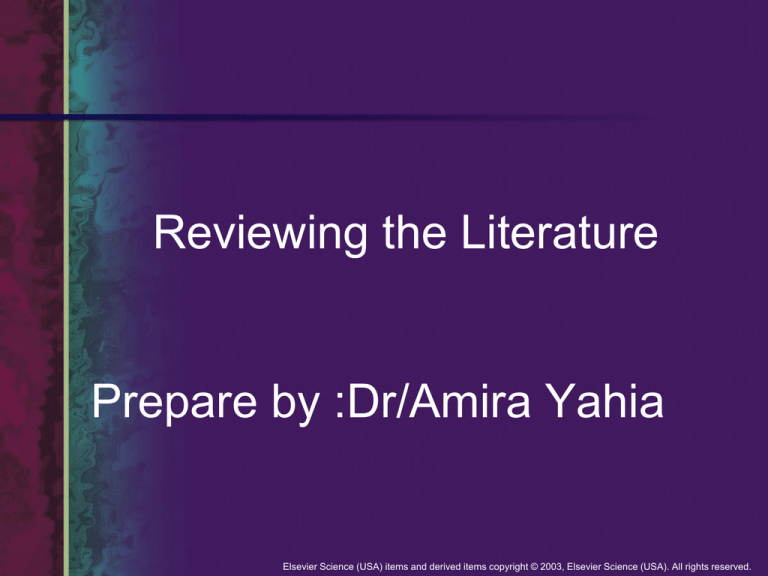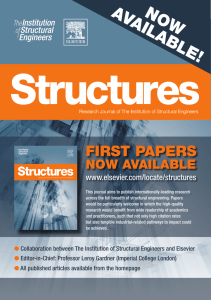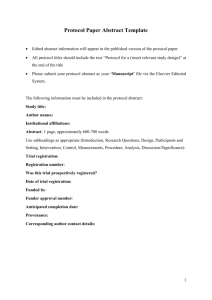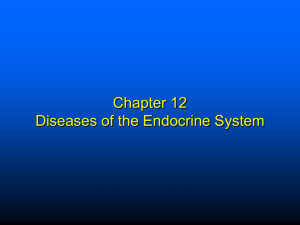
Reviewing the Literature
Prepare by :Dr/Amira Yahia
Elsevier Science (USA) items and derived items copyright © 2003, Elsevier Science (USA). All rights reserved.
Review of the available literature
Why do we review Lit.?
1. Prevents duplication
2. Assist in refining statement of the problem
3 . Strengthening the argument of selection of a
research topic (Justification )
4. It helps to get familiar with various types of
methodology that might be used in your study
(Design)
Elsevier Science (USA) items and derived items copyright © 2003, Elsevier Science (USA). All rights reserved.
PURPOSES OF A LITERATURE REVIEW
• Identification of a research problem and
development or refinement of research questions
or hypotheses
• Orientation to what is known and not known
about an area of inquiry.
• Determination of any gaps or inconsistencies in
a body of research
Elsevier Science (USA) items and derived items copyright © 2003, Elsevier Science (USA). All rights reserved.
• Determination of a need to replicate a prior
study in a different setting
• Identification or development of new or refined
clinical interventions to test through empirical
research
• Identification of relevant theoretical or
conceptual frameworks for a research problem
Elsevier Science (USA) items and derived items copyright © 2003, Elsevier Science (USA). All rights reserved.
• Identification of suitable designs and data
collection methods for a study
• For those developing research proposals for
funding, identification of experts in the field
who could be used as consultants
• Assistance in interpreting study findings and in
developing implications and recommendations
Elsevier Science (USA) items and derived items copyright © 2003, Elsevier Science (USA). All rights reserved.
SCOPE OF A LITERATURE SEARCH
The appropriateness of a reference concerns
both its content (i.e., its relevance to the topic
of the review) and the nature of the
information it contains.
The most important type of information for a
research review are findings from empirical
investigations.
Elsevier Science (USA) items and derived items copyright © 2003, Elsevier Science (USA). All rights reserved.
Cont…..
Cumulatively, research reports sum up what is
known on a topic, but the information from
such reports is of greatest value when the
findings are integrated in a critical synthesis.
Elsevier Science (USA) items and derived items copyright © 2003, Elsevier Science (USA). All rights reserved.
Source of information
- Articles
- Books
- Indexes
- Abstracts from journals
- International organization documents
e.g. (WHO,UNICEF)
Elsevier Science (USA) items and derived items copyright © 2003, Elsevier Science (USA). All rights reserved.
Source of information- cont.
- Reports from MOH facilities
- Vital statistics
- Census
- Surveillance system
- Surveys
-Computer search for international Literature
-Opinions, beliefs of key persons (Through
interview)
Elsevier Science (USA) items and derived items copyright © 2003, Elsevier Science (USA). All rights reserved.
Examples of primary and secondary sources:
Secondary source, a review of the literature
on patient experiences in the ICU: SteinParbury, J. & McKinley, S. (2000). Patients’
experiences of being in an intensive care
unit: A select literature review. American
Journal of Critical Care, 9, 20–27.
Elsevier Science (USA) items and derived items copyright © 2003, Elsevier Science (USA). All rights reserved.
Cont….
Primary source, an original qualitative study on
patient experiences in the ICU: Hupcey, J. E.
(2000). Feeling safe: The psychosocial needs of
ICU patients. Journal of Nursing Scholarship,
32, 361–367.
Elsevier Science (USA) items and derived items copyright © 2003, Elsevier Science (USA). All rights reserved.
The major types of research reviews include the
following:
1- A review included in a research report.
Research reports published in journals usually
include brief literature reviews in their
introductions.
These reviews have two major goals:
• to provide readers with a quick overview of the
state of knowledge on the research problem
being addressed.
• to document the need for the new study an
demonstrate how it will contribute to existing
evidence.
Elsevier Science (USA) items and derived items copyright © 2003, Elsevier Science (USA). All rights reserved.
2- A review included in a research proposal.
Research proposals designed to persuade funders
(or advisors) about the facts of a proposed study.
3-A review in a thesis or dissertation.
Doctoral dissertations often include a thorough
review covering materials directly and indirectly
related to the problem area.
Elsevier Science (USA) items and derived items copyright © 2003, Elsevier Science (USA). All rights reserved.
• 4-Free-standing literature reviews.
Increasingly, nurses are preparing literature
reviews that critically appraise and summarize a
body of research on a topic, and such reviews
play a powerful role in the development of an
evidence based practice.
Elsevier Science (USA) items and derived items copyright © 2003, Elsevier Science (USA). All rights reserved.
Electronic Literature Searches
Currently, the most widely used service providers
for accessing bibliographic files are the following:
• Aries Knowledge Finder (www.ariessys.com)
• Ebsco Information Services (www.ebsco.com)
• Ovid Technologies (www.ovid.com)
• PaperChase (www.paperchase.com)
• SilverPlatter Information (www.silverplatter.com)
Elsevier Science (USA) items and derived items copyright © 2003, Elsevier Science (USA). All rights reserved.
Key Electronic Databases for Nurse Researchers
•
The two electronic databases that are most
likely to
be useful to nurse researchers are CINAHL
(Cumulative Index to Nursing and Allied Health
Literature) and MEDLINE® (Medical Literature
On-Line). Other potentially useful bibliographic
databases for nurse researchers include:
Elsevier Science (USA) items and derived items copyright © 2003, Elsevier Science (USA). All rights reserved.
AIDSLINE (AIDS Information On-Line)
• CancerLit (Cancer Literature)
• CHID (Combined Health Information Database)
• EMBASE (the Excerpta Medica database)
• ETOH (Alcohol and Alcohol Problems Science
Database)
Elsevier Science (USA) items and derived items copyright © 2003, Elsevier Science (USA). All rights reserved.
Cont…..
• HealthSTAR (Health Services, Technology,
Administration, and Research)
• PsycINFO (Psychology Information)
• Rndex (Nursing and managed care database)
Elsevier Science (USA) items and derived items copyright © 2003, Elsevier Science (USA). All rights reserved.
Initial Research Report Critique
• What type of study was conducted?
• What was the setting for the study?
• Were the steps for the research process
clearly identified?
• Were any of the steps missing?
• Did the steps of the study logically link
together?
Elsevier Science (USA) items and derived items copyright © 2003, Elsevier Science (USA). All rights reserved.
How to write lit review?
- Use index cards
- Write in your own language.
Elsevier Science (USA) items and derived items copyright © 2003, Elsevier Science (USA). All rights reserved.
Bias in literature review
- The presentation of the available information in
such away that it reflects opinions or
conclusions that does not represent the
real situation
- Restricting references to those that support
the point of view of the author.
- Drawing far reach conclusions from shaky or
Preliminary results
Elsevier Science (USA) items and derived items copyright © 2003, Elsevier Science (USA). All rights reserved.
Ethical considerations in lit.
Review
- Bias
- Careless presentation and interpretation of
data
Put researcher on the wrong way
- Loss of resources.
- Wrong decisions
Elsevier Science (USA) items and derived items copyright © 2003, Elsevier Science (USA). All rights reserved.
How to write References
• 1/ From journals:
• Author (s). Article. Journal. Year; Volume:
Pages
• (Author : Surname followed by initial).
Elsevier Science (USA) items and derived items copyright © 2003, Elsevier Science (USA). All rights reserved.
How to write References
2/ From a book
Author. Title of the book. Edition. Place:
Publisher, Year: Pages.
3/ From a chapter in a book
Author (s). Chapter title, In: Editors of the book.
Edition. Title of the book. Place. Publisher,
Year: Pages
Elsevier Science (USA) items and derived items copyright © 2003, Elsevier Science (USA). All rights reserved.
Elsevier Science (USA) items and derived items copyright © 2003, Elsevier Science (USA). All rights reserved.




